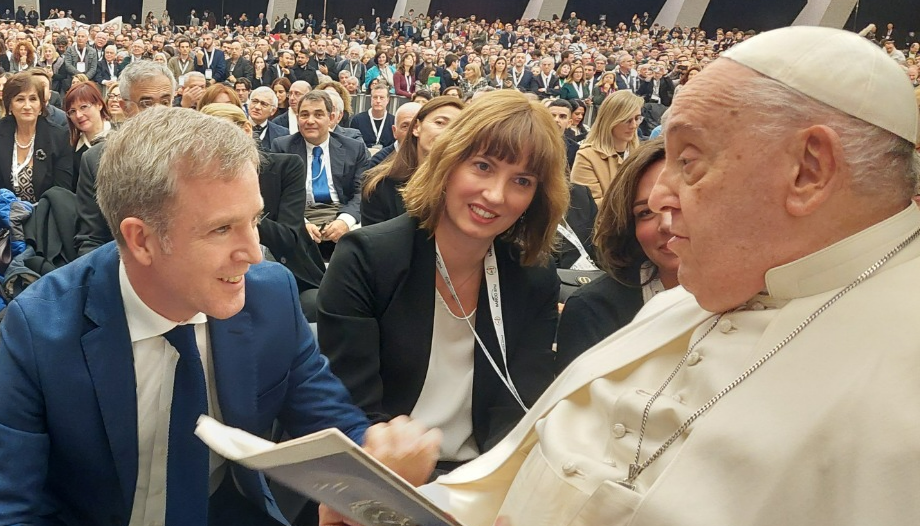Javier Martínez-Brocal is a veteran Vaticanist who has closely covered the pontificate of Francis. As a journalist he has devoted much of his career to reporting on the Vatican and the Catholic Church. He was director of Rome Reportsone of the leading news agencies on the Pope and the Holy See, and its work has been key to bringing religious information to the public with a clear and accessible approach.
In this interview, Martinez-Brocal unpacks for Omnes his vision of the role of journalism in the Holy See and how he perceives the evolution of communication within the Vatican in an increasingly interconnected world.
From your experience as a Vatican correspondent, what are the main differences in Pope Francis' communication with respect to his predecessors?
I have the impression that Francis wanted to show that the Pope is not a distant authority. One of the main threads of the Pontificate is closeness, also in communication. He has done dozens of interviews.
The Pope has opted for a more direct relationship with journalists, without relying so much on the Press Room. What impact has this had on the Vatican's media coverage?
From the point of view of the Dicastery of Communication, I imagine that it was not very easy, since the Pope relied a lot on his instinct, and almost never asked for advice from the Dicastery of Communication for his relations with the press. With regard to the media, the impact has been enormous. It is a way of saying that he did not mind answering direct questions, that he was not afraid to give an account of his decisions.
How has this new communication model changed the way the media interprets and transmits papal messages?
The Pope's proximity is already a very strong message, and it allows the starting point to be positive. This desire for dialogue is perceived by the media as openness, and allows us to face complex and negative issues from a constructive point of view.
In an era of social networks and immediate access to information, what challenges and opportunities does this more spontaneous and accessible style of Francis represent?
The speed with which social networks reproduced decontextualized statements of the Pope has led to misunderstandings and misunderstandings. I think this has poisoned the perception of Francis on some occasions, but in the medium term it has benefited the specialized media, since it has aroused greater curiosity, and greater demand to understand the codes he uses.
On his apostolic journeys, Francis often makes statements on the plane that generate global headlines. Have these press conferences helped to understand the Pope or have they generated ambiguous interpretations?
These press conferences have had more advantages than disadvantages, they have been very useful. They have allowed him to explain himself, they have shown how the Church has a constructive attitude. And I seem to remember that when he has made mistakes or used colorful expressions, he has always apologized.
Francis' travels have prioritized geographic and existential peripheries, such as Iraq or South Sudan. What would you highlight from your impressions of his travels?
I am left with his interest in going where no one wanted to travel, in putting the spotlight on countries and situations that go unnoticed in the global game of interests: Albania, Papua New Guinea, East Timor... I was touched by this delicacy.
Do you think Francis' travels have redefined Vatican diplomacy and its role in international conflicts?
I wouldn't know... I think they have helped to better understand the Pope's priorities as a religious leader, which were different from those he would have if he were just a political leader.
Francisco has written more than 40 books Has this level of production made your voice more influential?
It is necessary to distinguish the compilations of his homilies and speeches that have been published as if they were his books, from those that he has actually followed as a publishing project, which are few. These in general are very valuable and have been well received.
Do you think the Pope has been too much exposed to the media?
On the world scene, he is undoubtedly one of the most interesting and independent voices and perhaps the one that has contributed the most to curb the crises that now overwhelm us. Some would have preferred him to speak less, perhaps because they resented what he said.









